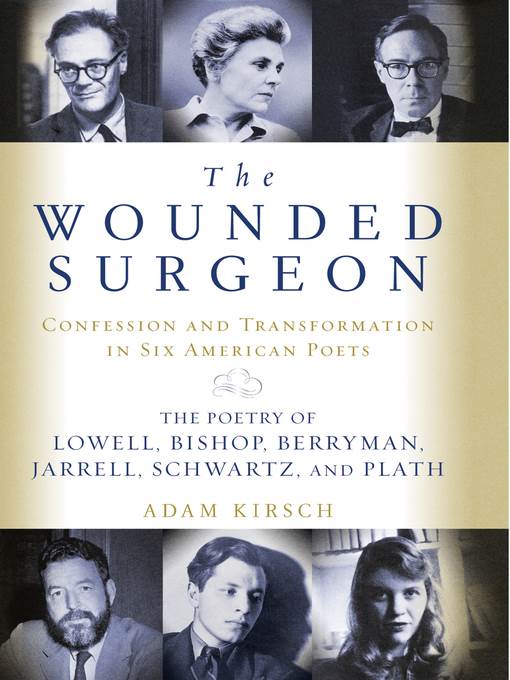
The Wounded Surgeon
Confessions and Transformations in Six American Poets
- اطلاعات
- نقد و بررسی
- دیدگاه کاربران
نقد و بررسی

February 28, 2005
The "great constellation" of writers Kirsch discusses have been praised as the first wave of "confessional" poets, but he finds this received opinion misguided. What makes these poets special, he argues, is not that they spilled their emotional guts on the page, but the ways in which they transformed these personal experiences into art: "their primary motive was aesthetic," he says. Kirsch, book critic for the New York Sun,
emphasizes the "deliberate manipulation of tone and language" in poems that some readers have mistaken for straightforward autobiographical expressions, particularly in discussing Lowell (whom he considers the best American poet born in the last century). Such discussion sets the tone for the later chapters; the sameness of the thesis is mitigated by very close readings of each poet's verse in support of Kirsch's account of the poetry's development. Where Kirsch finds weaknesses, such as a decline in Schwartz's talents or Plath's bad taste in equating her father with the Nazis in "Daddy," he addresses them frankly. His confident and comprehensive assessments bear a great resemblance in method and tone to those of his former teacher, Helen Vendler, and will engage any reader looking for a fresh take on some of America's best-known poets.

May 1, 2005
"New York Sun" book critic Kirsch ("The Thousand Wells") understands poetry as both a critic and a practitioner. Here he reevaluates the work of six leading lights of 20th-century American poetry: Robert Lowell, Elizabeth Bishop, John Berryman, Randall Jarrell, Delmore Schwartz, and Sylvia Plath. He sees this group as reacting against T.S. Eliot's insistence that poetry be impersonal and opening the art form up to include an emotional honesty that was previously veiled in allusion and ambiguity. At the same time, he takes exception to the term "confessional", often used to describe this group of poets. Through detailed analyses of each poet's work, he illustrates that they were not simply spewing autobiographical pap (as did the worst of their imitators), but that each had a commitment to poetry as an aesthetic rather than a therapeutic pursuit. Recommended for academic and larger public libraries. -Alison M. Lewis, Drexel Univ. Lib., PA
Copyright 2005 Library Journal, LLC Used with permission.




دیدگاه کاربران